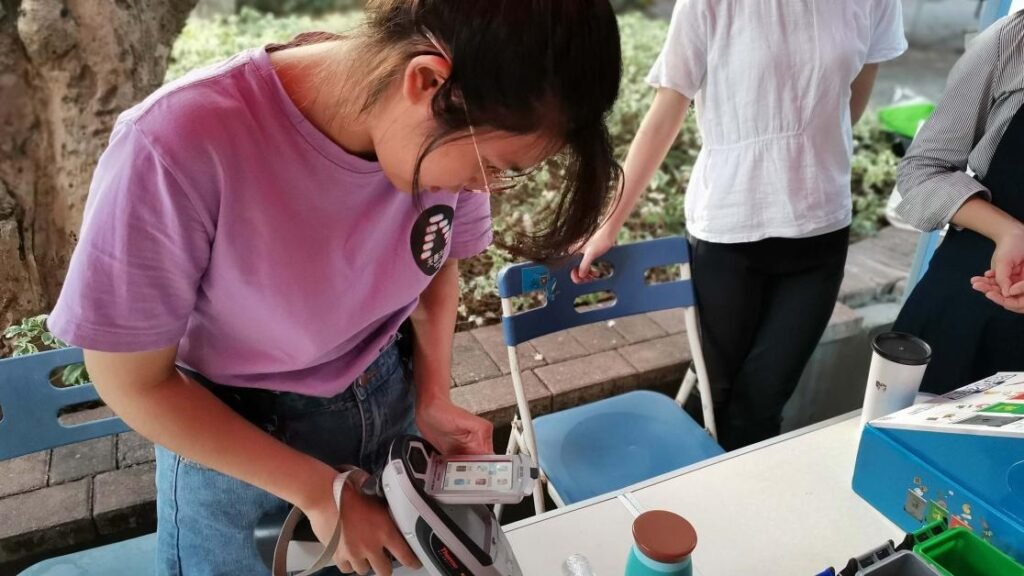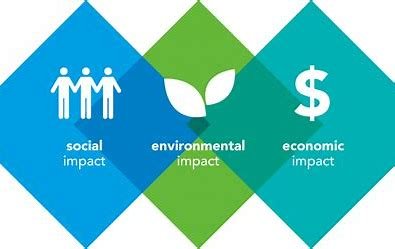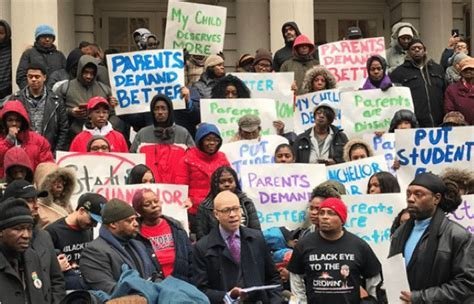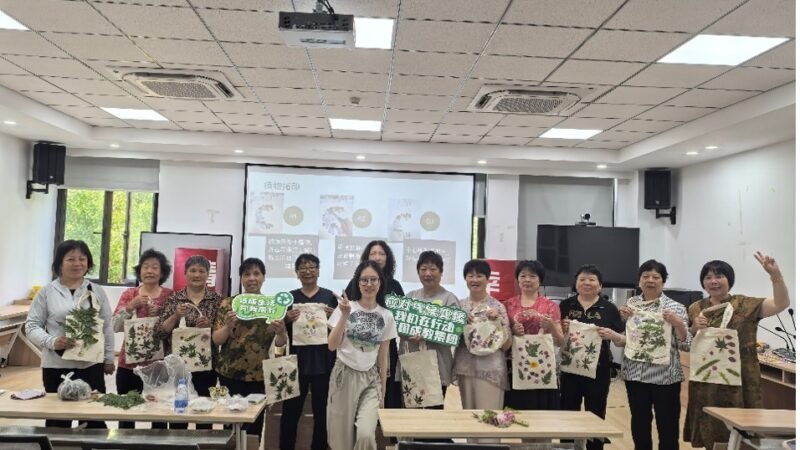By Li Hanlin
The significance of environmental issues has become increasingly prominent in today’s society, primarily due to their impact on human survival and the overall health of the Earth’s ecosystem. Currently, challenges such as climate change, loss of biodiversity, air and water pollution, and sustainable resource utilization require solutions. International conferences are crucial in facilitating cooperation and communication among governments, businesses, and NGOs in the environmental field.
In the capacity of an intern researcher at the Shenzhen Zero Waste Environmental Development Center, a social organization, the author participated in the “CORPORATE SUSTAINABILITY AND ENVIRONMENTAL RIGHTS IN ASIA” co-hosted by the United Nations Environment Programme and the United Nations Development Programme in Bangkok, Thailand.
Throughout the conference, stakeholders shared experiences, engaged in academic exchanges, and collectively discussed regulations and standards. It is only through collaborative efforts among nations that sustainable development and ecological balance can be achieved. The author had three main objectives for attending the conference: understanding the most pressing environmental/sustainable development issues, sharing the spirit and topics of the conference with peers and other environmental organizations, and bringing thoughtful considerations on using technology to address environmental issues to the conference.

Conference Background and Core Perspectives
The increasing urgency of global environmental issues has attracted widespread international attention, posing threats to both human survival and the quality of life. These issues also present substantial challenges to global society, economy, and sustainable development. In response, the United Nations has introduced sustainable development goals and biodiversity treaties. However, disparities in development levels and interests among countries, the conflict between economic development and environmental protection, and inadequate public awareness all contribute to challenges in international cooperation.
The conference attended by the author focused on the “CORPORATE SUSTAINABILITY AND ENVIRONMENTAL RIGHTS IN ASIA.” The theme centered around a 48-month project initiated by the United Nations, titled “Business and Human Rights in Asia: Promoting Sustainable Economic Growth through the ‘Protect, Respect, and Remedy’ Framework.” Co-hosted by the United Nations Environment Programme (UNEP) and the United Nations Development Programme (UNDP), the conference facilitated discussions on the roles of businesses and governments in supporting and strengthening the rights to a clean, healthy, and sustainable environment. The event took place in Bangkok, Thailand, from October 4-5, 2023, with key agenda items including “The Role of Businesses in Ensuring the Right to a Clean, Healthy, and Sustainable Environment,” “Biodiversity and Ecosystems: Approaches to Disclosure and Due Diligence,” “Clean Oceans and Rivers in Asia,” and “Youth, Business, and Climate Action: Bridging the Gap.”
Core Perspective 1: Sustainable Development and Ecological Protection
A crucial theme of the conference was the discussion on sustainable development and ecological protection. In the first session, “The Role of Businesses in Ensuring the Right to a Clean, Healthy, and Sustainable Environment,” an expert highlighted the importance of having a safe and free space where stakeholders can thoroughly discuss energy and sustainable development issues. The prerequisite for collective progress among nations is the establishment of a fair and secure platform, allowing countries to freely cooperate and address environmental and sustainable development issues collectively.

Furthermore, speakers at the conference emphasized the need for mutual trust and shared values in addressing environmental challenges and building a sustainable future. The role of businesses in respecting and promoting human and environmental rights, as well as providing effective remedies for affected individuals and communities, was underscored. Collaboration with governments to drive sustainable development and bring about behavioral changes was deemed crucial.
The conference emphasized that sustainable development should not be discussed as a standalone topic but as a right and an inherent cultural value. Representative Ma Jun from the Institute of Public and Environmental Affairs (IPE) in China highlighted the importance of establishing an open and transparent environmental data-sharing platform as a fundamental basis for collaboration.
Core Perspective 2: Policies and Legal Framework
The conference extensively discussed environmental policies and legal frameworks. In the session on “Clean Oceans and Rivers in Asia,” experts and decision-makers emphasized the importance of robust laws in mitigating ocean and river pollution. Gloria Estenzo Ramos, Vice President of Oceana Philippines, stressed the need for people to respect the law, calling for transparent and accountable government actions. The conference highlighted the necessity for a strong legal framework for businesses, with those enforcing the law receiving adequate protection to effectively address water pollution issues through government-business collaboration.

Another guest speaker, Mayuree Aroonwaranon, Co-founder and CEO of GEPP·Sa-Ard, emphasized the need for governments to set quantifiable common goals to achieve effective collaboration among various stakeholders. This approach, according to the speaker, provides clear guidance to businesses, enhancing their contributions to environmental protection. The 23 goals discussed at the conference reflected this viewpoint.
Insights and Experience Sharing
One significant aspect of United Nations conferences is international knowledge sharing and experience exchange. The author, in the role of an assistant researcher, established connections with other participants during the conference. Notably, an interview was conducted with Louise Emmanuelle, founder of the Cocoa Project and advocate for food and land use. The discussion focused on how to mobilize students in schools to be enthusiastic and proactive in environmental protection. Louise emphasized the importance of making students aware that environmental issues are interconnected with various aspects of their lives, such as the supply chain of food.
Moreover, the author made two presentations at the United Nations conference. The first addressed the author’s concern about using technology to solve environmental problems. In the session on “Clean Oceans and Rivers in Asia,” the author asked experts about their views on the pros and cons of using technology to address environmental issues. Rick Brubaker, the General Manager of “Collective Responsibility Ltd.,” mentioned that utilizing technology to solve environmental problems requires appropriate investments and suggested collaboration with local governments for project funding.
Responding to the question, Mayuree Aroonwaranon highlighted the importance of strict adherence to government-established laws when using technology and emphasized the need to consider the value of technology. For instance, in the context of detecting leaks in oil pipelines, the use of technology can protect human safety, showcasing the value of technology. In the session on “Youth, Business, and Climate Action: Bridging the Gap,” the author inquired about how a young person, like Louise Emmanuelle, had the confidence to convince experienced farmers to engage in sustainable development. Louise pointed out that young people have more energy and opportunities to experiment, providing them with unique advantages.
The Power of Public Action (Mindful Action)
In addressing environmental issues, public narratives and mindful action play a crucial role. Harvard University’s Public Narrative Theory emphasizes the importance of stories in shaping individual and societal cognition. By disseminating stories about environmental protection in the public domain, values, attitudes, and behaviors can be influenced. Youth plays a special role in this process as they are more susceptible to new ideas and social change. The Empowerment Theory underscores the importance of social support and group dynamics in behavior change.

In environmental action, young people are more likely to receive support from peers, communities, and society, making it easier for them to translate support into practical actions. Placing environmental action in the actual environment makes it more concrete and feasible, able to better guide young people’s participation. The author shared experiences of researching a biomimetic underwater robot to address underwater garbage collection and pipeline leak detection, linking the project to legal and government requirements to better drive the development of environmental initiatives.
Conclusion
This article reflects on the author’s experience participating in a United Nations international conference as a representative of a social organization, emphasizing the core perspectives and insights gained. Firstly, the conference focused on sustainable development and ecological protection, underscoring the importance of establishing a fair and secure platform to facilitate international cooperation in solving global environmental issues. Secondly, the conference delved into the formulation and execution of environmental policies and legal frameworks, emphasizing the significance of laws and quantifiable goals. The article provides detailed accounts of the author’s questions and contributions during the conference and interactions with other attendees. Using the example of underwater robot research, the author highlights the importance of practical environmental issues, combining environmental action with technological innovation to better address challenges. Lastly, the article emphasizes the responsibility of researchers post-conference- to share the spirit and insights of the United Nations conference with domestic environmental organizations and peers in school. The author shared experiences at a grassroots exchange meeting on chemical safety on November 23, conveying insights gained as a researcher participating in the forum. Additionally, plans are in place to conduct similar sharing sessions in school classes and clubs, spreading the spirit of the United Nations conference to the author’s school community.

References



